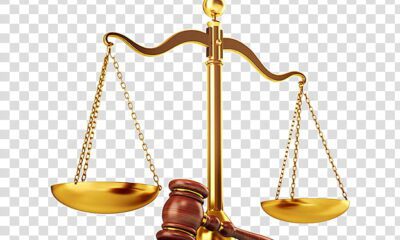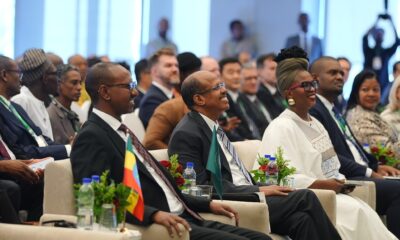National Issues
Citizen Journalism or Chaos? How Social Media Is Shaping Nigeria’s Future -By Nurudeen Abdulganiyu
What are the challenges of unregulated journalism in Nigeria? Let’s start with invasion of privacy where many citizen journalists ignore personal boundaries. Viral videos often feature people unaware they are being recorded, leaving them exposed to public criticism. A trending TikTok video earlier this year showed a woman being mocked for her outfit in a Lagos mall—without her knowledge or consent. This has become a trend for users on tiktok and this is not being regulated. Another problem is misinformation and defamation.

Social media platforms like X (formerly Twitter), TikTok, and Facebook have transformed how Nigerians consume news and entertainment. Everyone with a smartphone can now broadcast information to thousands in seconds. While this is empowering, it comes with significant risks. Citizen journalism (ordinary people documenting and sharing events) has risen as a fast, accessible alternative to traditional journalism. However, this unregulated practice often blurs the line between information sharing and ethical violations, leading to misinformation, invasion of privacy, and defamation.
The Good and the Ugly of Citizen Journalism
With smartphones in hand, citizen journalists capture and share events in real time, making social media a powerful tool for exposing injustices. For example, during the #EndSARS protests, Nigerians used platforms like Twitter and Instagram to document police brutality, mobilize support, and hold authorities accountable. These efforts brought global attention to the movement, highlighting the value of citizen journalism in amplifying marginalized voices.
But the same tools have also caused harm. For instance, in 2023, a TikTok influencer went viral for recording and mocking a market woman’s appearance without her consent. The video drew thousands of negative comments, humiliating the woman and sparking outrage about the misuse of social media for ridicule. Similarly, during the elections, viral posts claiming rigged results caused widespread tension, later revealed to be unverified or outright false.
What are the challenges of unregulated journalism in Nigeria? Let’s start with invasion of privacy where many citizen journalists ignore personal boundaries. Viral videos often feature people unaware they are being recorded, leaving them exposed to public criticism. A trending TikTok video earlier this year showed a woman being mocked for her outfit in a Lagos mall—without her knowledge or consent. This has become a trend for users on tiktok and this is not being regulated. Another problem is misinformation and defamation. False news spreads fast on social media. During a 2022 religious crisis in Northern Nigeria, a viral post falsely accused a politician of funding the unrest. Though later debunked, the damage had already fueled public anger. Public figures are frequent targets of such defamatory claims for likes and shares. Social media platforms like X is an example where users defame individuals and share false information but with the introduction of “Community Note” where users can fact check and report the post, it has become easier to spot a false news and click bait article. What about toxic content? Platforms like TikTok are loaded with videos criticizing strangers or promoting hateful narratives. For example, influencers have made trends out of judging people’s lifestyles, fostering a toxic online environment that encourages negativity rather than constructive dialogue.
All these problems are caused by lack of accountability. Unlike professional journalists bound by ethical standards, citizen journalists operate without checks. Harmful content often goes viral before platforms or users can verify it, leaving victims with little recourse. To minimize the harm caused by irresponsible social media use, Nigerian citizens and platforms must prioritize ethical practices. Here are actionable steps:
Respect Privacy: Always seek permission before sharing someone’s image or personal details. If it’s not your story to tell, don’t tell it.
Verify Information: Before posting, ensure that your facts are backed by credible sources. Misinformation ruins reputations and spreads chaos.
Think Before You Post: Avoid sharing content that criticizes or humiliates others for likes and engagement.
Digital Literacy Campaigns: Educate users on responsible social media behavior and the importance of fact-checking.
How do we strike the right balance?
While regulation is necessary, overregulating social media could stifle free speech and the positive aspects of citizen journalism. Instead, a balanced approach is needed. Tech platforms should enhance content moderation, and the government should enforce laws against defamation and privacy invasion without compromising freedom of expression.
In conclusion, social media is a double-edged sword in Nigeria. On one hand, it empowers citizens to expose injustice and amplify important issues. On the other, it has become a breeding ground for toxic content, misinformation, and privacy violations. The solution lies in a collective effort to use these platforms responsibly—balancing freedom of expression with respect for others’ dignity. With the right ethical practices, citizen journalism can be a force for good in Nigeria’s digital age.
Nurudeen Abdulganiyu Afolabi
Department Of Mass Communication
Bayero University, Kano









